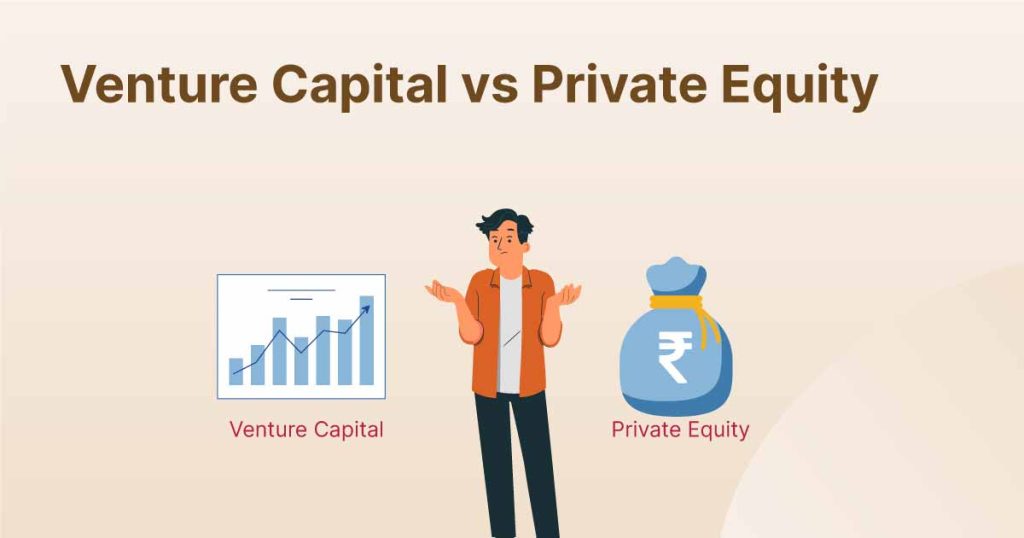In the world of finance, two terms often come up when discussing alternative investments: Private Equity (PE) and Venture Capital (VC). While they may sound similar and are sometimes even used interchangeably, they are in fact quite distinct. Both PE and VC involve investing in companies that are not publicly traded, but they differ significantly in terms of the stage of investment, level of risk, deal structure, and expected returns.
What Is Private Equity?
Private Equity refers to investments in established, mature companies. PE firms typically acquire controlling stakes or buy out entire businesses, often using a mix of equity and debt (leveraged buyouts). Their goal is to restructure, streamline, and grow these companies before eventually selling them at a higher valuation.
- Focus: Mature companies, often underperforming or undervalued
- Strategy: Restructuring, cost optimization, scaling
- Exit: Sale, merger, or IPO after 5–10 years
What Is Venture Capital?
Venture Capital focuses on early-stage startups with high growth potential. VC firms provide funding in exchange for minority equity stakes, typically without taking full control of the company. In addition to money, venture capitalists often provide mentorship, industry connections, and strategic guidance.
- Focus: Startups, innovative and high-growth industries (tech, biotech, fintech)
- Strategy: Seed funding, Series A, B, C rounds
- Exit: IPO, acquisition by larger companies, or secondary sales
Key Differences Between Private Equity and Venture Capital
| Aspect | Private Equity | Venture Capital |
|---|---|---|
| Stage of Companies | Mature, stable businesses | Early-stage startups |
| Risk Profile | Moderate (companies already generate revenue) | High risk (many startups fail) |
| Investment Size | Large, often hundreds of millions | Smaller, from thousands to millions |
| Control | Often majority or full ownership | Minority stake, advisory role |
| Use of Debt | Heavy use of leverage | Rarely any debt financing |
| Return Potential | Moderate but reliable | High-risk, high-reward |
Why the Distinction Matters for Investors
Understanding the differences between PE and VC is crucial for investors who want to align their portfolios with their risk tolerance and return expectations.
- If you value stability, structured growth, and long-term strategies — Private Equity may be the right fit.
- If you are willing to embrace risk in exchange for potentially massive rewards — Venture Capital could be more appealing.
Both play a critical role in shaping the global economy: PE in restructuring and strengthening existing companies, and VC in fueling innovation and technological advancement.
✅
Private Equity and Venture Capital are both powerful tools for building wealth outside traditional markets. The choice between them depends on whether you prefer to back proven businesses or take a chance on the next big innovation.


